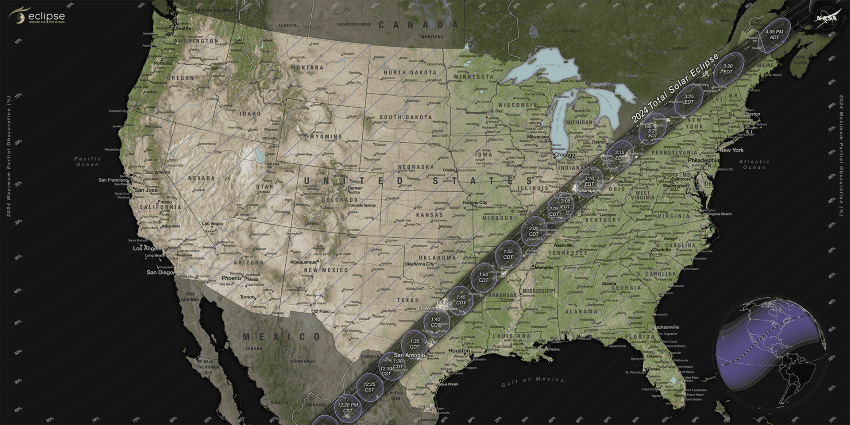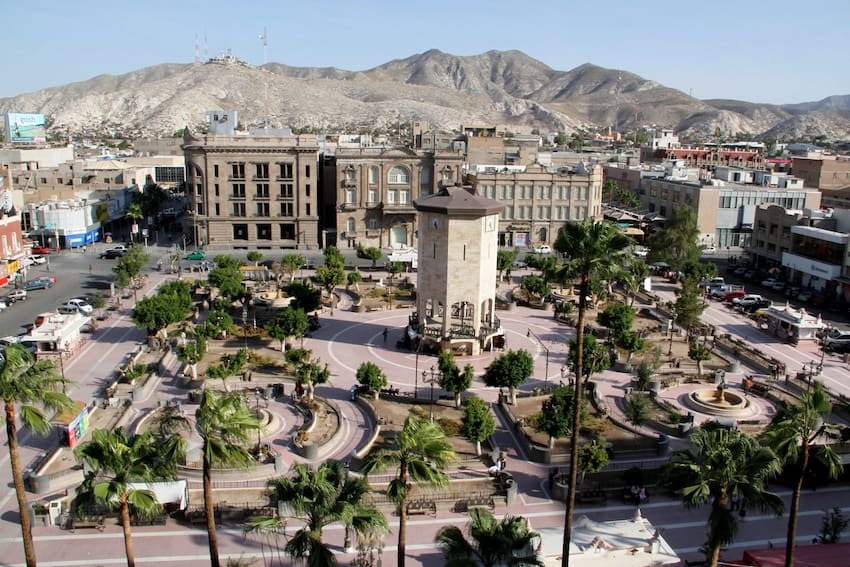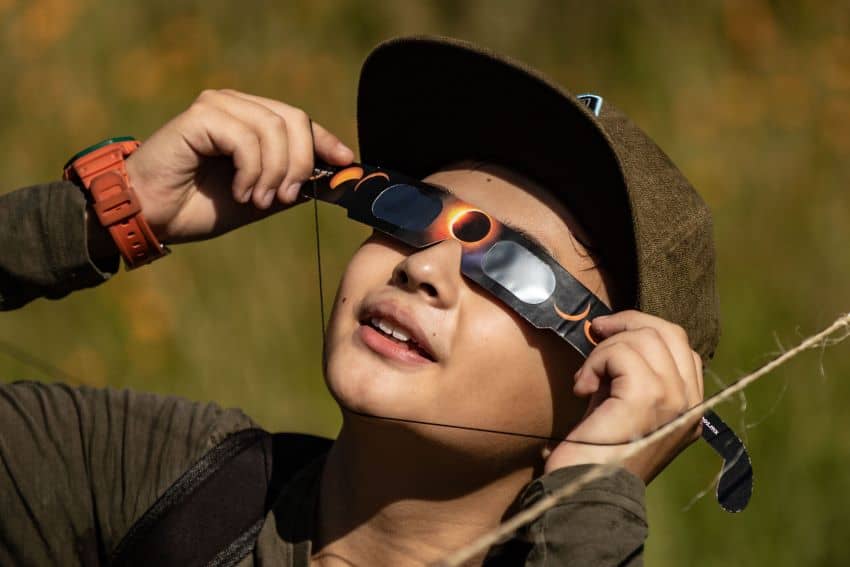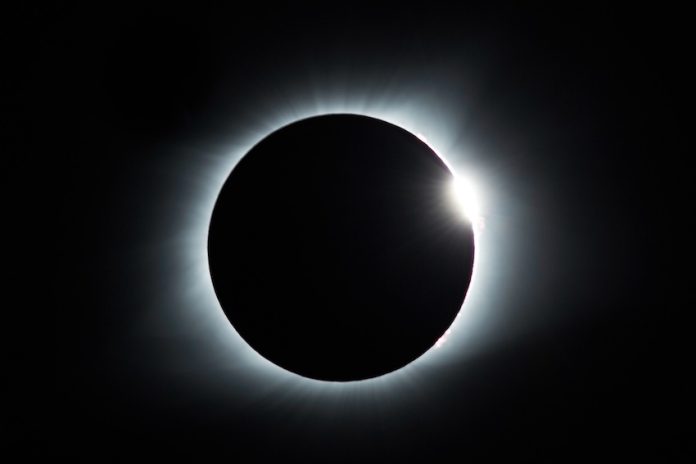Mark your calendars because, on April 8, 2024, the Earth will experience a total solar eclipse, making it an unforgettable day for skywatchers across North America!
A total solar eclipse occurs when the Moon positions itself perfectly between the Earth and the Sun, casting its shadow onto our planet. As the Moon completely covers the Sun, it unveils the Sun’s outer atmosphere, known as the corona, creating a mesmerizing display of ethereal light. For those lucky enough to be within the path of totality, the sky will darken, as day turns into night.

The upcoming total solar eclipse is set to journey across Mexico, the United States, and Canada, offering many opportunities for enthusiasts to witness this awe-inspiring event. Within the United States, individuals situated along the eclipse’s path from Texas to Maine will have the chance to experience this celestial phenomenon firsthand, provided that weather conditions allow.
Where is the best place to see the total eclipse in Mexico?
In Mexico, the standout location to experience totality is Torreón, located in the northern state of Coahuila. Torreón was chosen by NASA as the official location where to observe and broadcast the celestial event to the world thanks to the minimal probability of clouds in the Laguna de Coahuila region, meaning the city is perfectly positioned to provide an excellent view of the eclipse.
This location caught the attention of scientists due to an exciting perk – everyone here, close to the centerline, will experience an extra 14 seconds of totality compared to other areas. In Torreón, the total solar eclipse kicks off just before 12:17 pm CST, treating witnesses to an impressive total of 4 minutes and 28 seconds of eclipse.
For this eclipse, the path of totality, the area where the Moon completely obscures the Sun, is significantly broader than its 2017 predecessor. This phenomenon is due to the Moon’s closer proximity to Earth, resulting in a path width ranging from 108 to 122 miles across North America, compared to the narrower 62 to 71 miles observed in 2017. An estimated 31.6 million people live within the path of totality, compared to 12 million in 2017, with an additional 150 million people living within 200 miles of the path.

The state-of-the-art planetarium in Torreón further solidified its appeal as the chosen location for NASA’s observation. The planetarium will serve as the hub for broadcasting the phenomenon to the world, highlighting Torreón’s technological capabilities and dedication to promoting scientific education and outreach. Additionally, the friendliness of the local community played a significant role in NASA’s decision, reflecting the warm hospitality and support that Torreón offers to visitors and researchers.
For would-be eclipse chasers who prefer a touch of oceanside charm, however, Mazatlán is another favored destination for observing the phenomenon. The Sinaloa resort city will also offer excellent views of the totality, and is expecting 120,000 visitors.
Can I visit Torreón to see the total eclipse?
As a result, Torreón is gearing up to host over 50,000 guests! The anticipation is so intense that hotels in the Torreón area are already fully booked. With this overwhelming demand, alternative lodging options are expected to emerge through Airbnb, and local golf courses are exploring the possibility of renting out their green areas for camping.
Furthermore, the Coahuila Ministry of Education and the Torreón Planetarium have collaborated to transform at least 150 schools into observatories for this astronomical event. These educational centers have been carefully selected for their open spaces and suitable conditions to observe the celestial spectacle, aiming to engage students and the broader community in firsthand observation of this extraordinary phenomenon.
Visitors are also planning to stay in the neighboring cities of Gomez Palacio and Lerdo, in the state of Durango. The Torreón International Airport is serviced by all major Mexican airlines and Delta and American Airlines from the US.
Should I take precautions when staring at the sun?

Safety is paramount when witnessing such a breathtaking event. While watching a solar eclipse is an exhilarating experience, it’s crucial to prioritize safety to protect your vision. Without proper eye protection, such as solar eclipse glasses or solar filters for telescopes and binoculars, looking directly at the sun during an eclipse can lead to severe eye damage, including permanent blindness. It’s essential to use specialized safety gear that meets international safety standards, like ISO 12312-2, to ensure adequate protection from the sun’s harmful rays. By taking the necessary precautions, you can enjoy the awe-inspiring beauty of a solar eclipse while safeguarding your eyesight.
As the eclipse day approaches, let’s all remember to pause, let the temporary darkness embrace us, and revel in the unique ballet our planet dances in the sky. In this beautiful reminder of our precious place in the cosmos, let’s come together to celebrate, feeling a little closer to the stars and each other, marveling at the wonders of our universe.
Sandra Gancz Kahan is a Mexican writer and translator based in San Miguel de Allende who specializes in mental health and humanitarian aid. She believes in the power of language to foster compassion and understanding across cultures. She can be reached at: sandragancz@gmail.com
